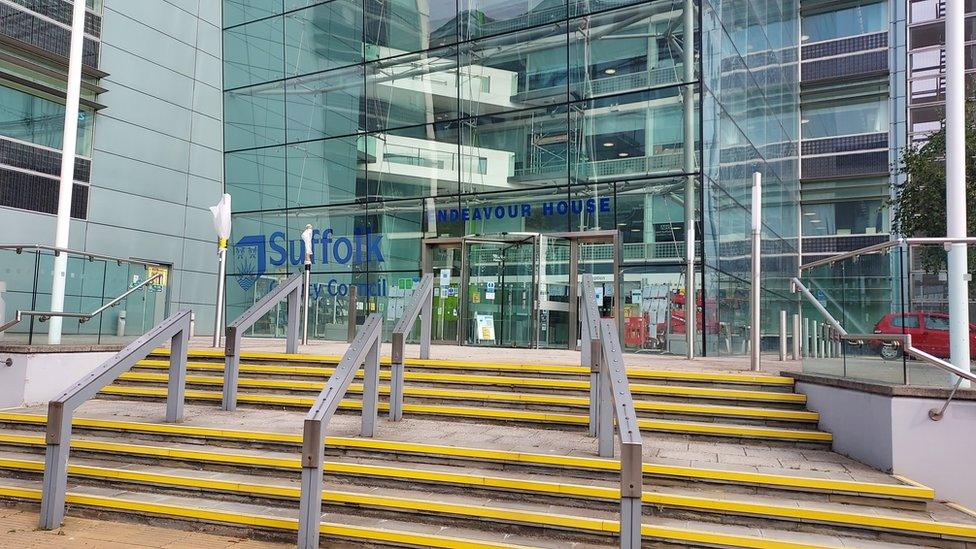Suffolk County Council expecting to miss net-zero carbon target
- Published
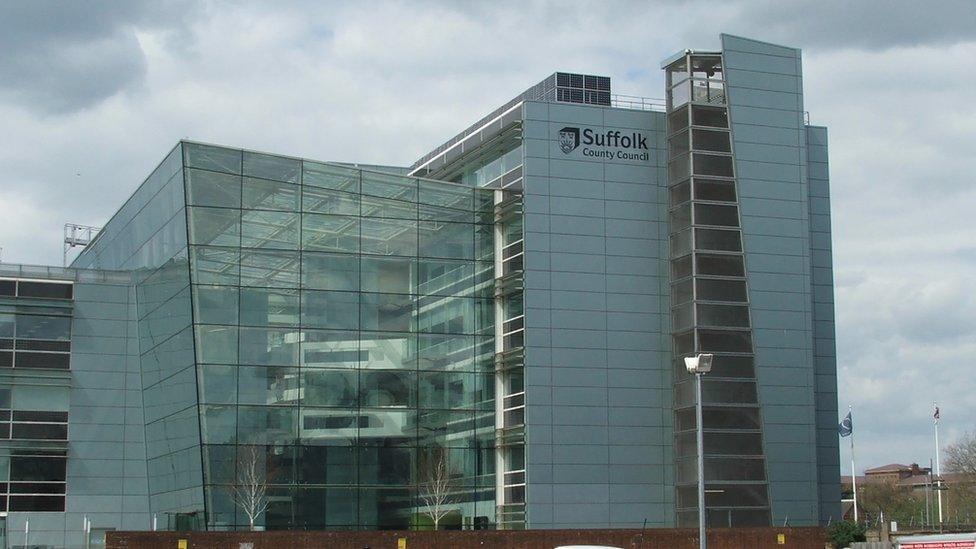
Conservative councillor Richard Rout hoped new technology would help the council reach its 2030 net-zero target
A local authority's climate targets are expected to be missed, but councillors said hopes remained for the future.
Suffolk County Council pledged to be a net-zero carbon producer by 2030, after it declared a climate emergency in 2019.
Despite some progress, the council's Scrutiny Committee, external heard that it was unlikely this target would be met.
The Conservative Deputy Leader Richard Rout hoped target issues would be addressed as new technology developed.
The council measures its performance through three different markers - direct, indirect and other indirect energy emissions.
Direct energy emissions occur directly from council-owned sites or assets, such as gas boilers and fleet vehicles, while indirect energy emissions occur from energy bought to be used by those council-owned sites, such as heat or steam.
Other indirect emissions include those produced as a result of council activities, such as employee commutes and waste disposal.
Current estimates showed the council would only reduce its carbon emissions against its first two markers by 61%, with the possibility for further reductions as people begin to change their behaviours.
However, predictions for its third marker, which constitutes 91% of the council's total footprint, show minimal reductions by the deadline, the Local Democracy Reporting Service heard.
Ned Harrison, Carbon Negative Nature Positive programme manager, said uncertainty was the main reason behind the council's possible failure to meet targets.
"We don't currently know how we will reduce all our emissions to net-zero by 2030," he explained.
"There are reductions we think we will achieve - we just don't know what they are yet - and then there are reductions we don't think we can achieve."
Mr Rout said: "It's difficult to predict where technology will be, but the field is moving on at a remarkable pace and costs are coming down over time.
"We still need to develop plans to close the gap. The shift to net-zero is a shift in culture as much as new technology."
Conservative councillor Stuart Bird expressed concerns: "We're short of the target and we're short of answers.
"When we're that far short, just hoping some technology will come along in time doesn't convince me."
In response, Mr Rout said: "We're by no means relying on new technology but I think history, and the acceleration of technology over the many years, shows the rate at which technology is improving is increasing exponentially."

Follow East of England news on Facebook, external, Instagram, external and X, external. Got a story? Email eastofenglandnews@bbc.co.uk , externalor WhatsApp 0800 169 18
Related topics
- Published5 December 2023
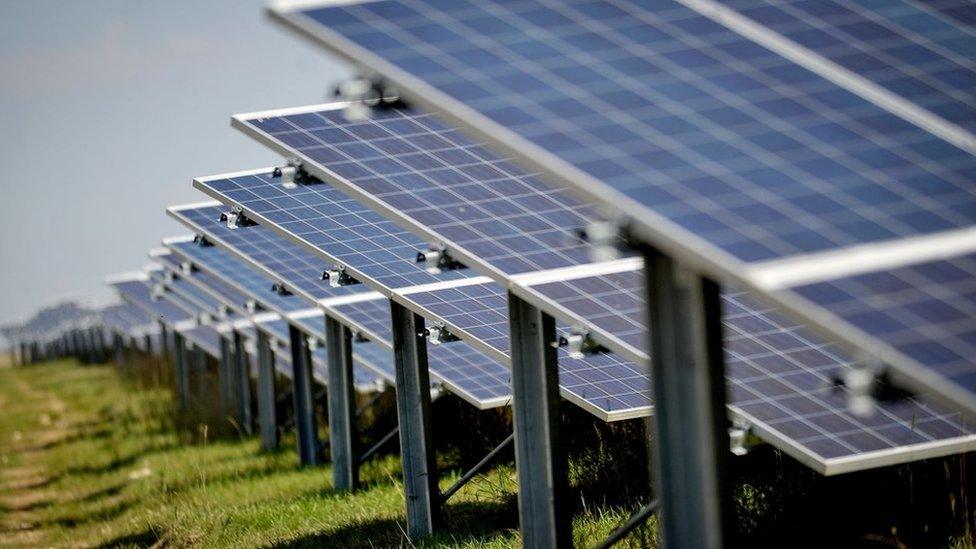
- Published24 October 2023
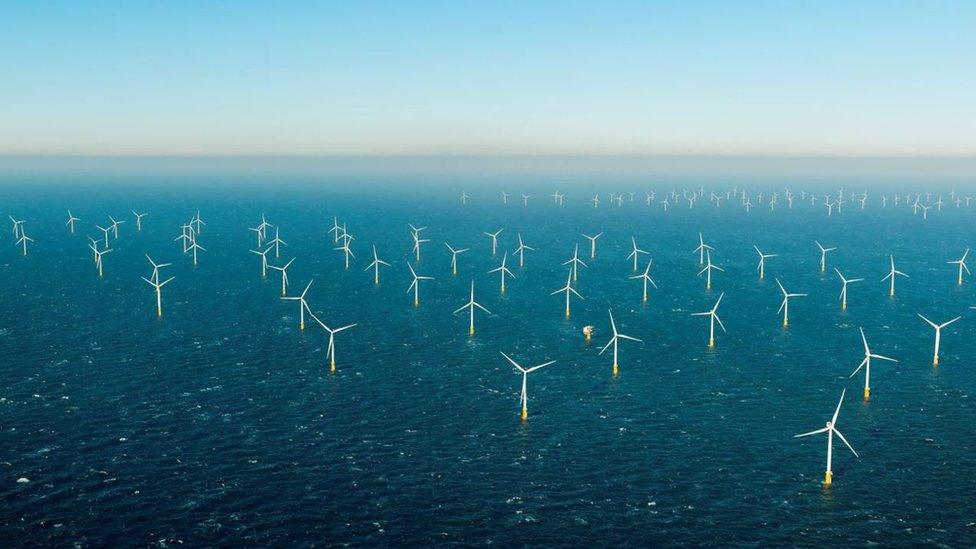
- Published6 September 2023
- Published25 January 2022
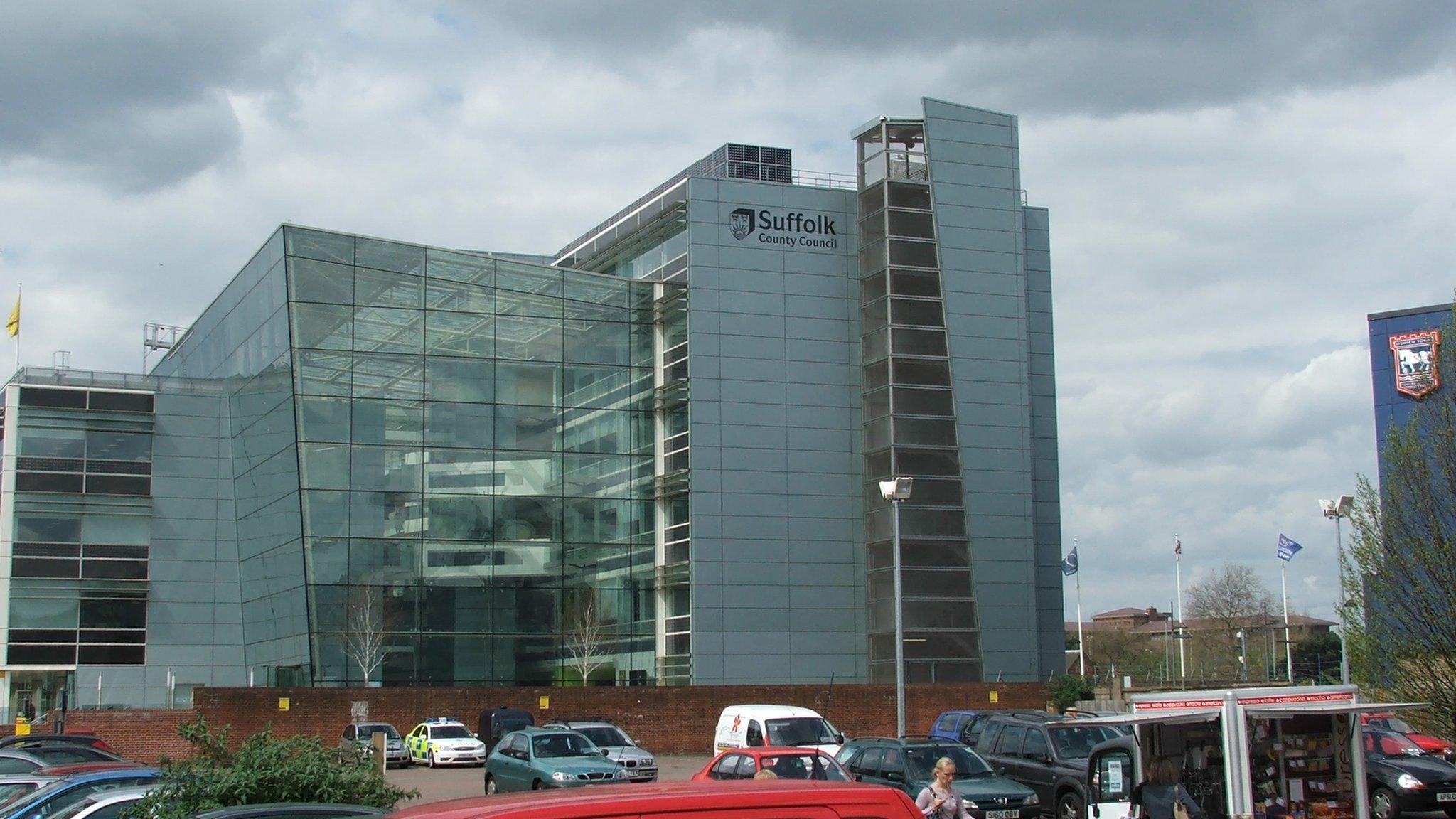
- Published10 November 2021
